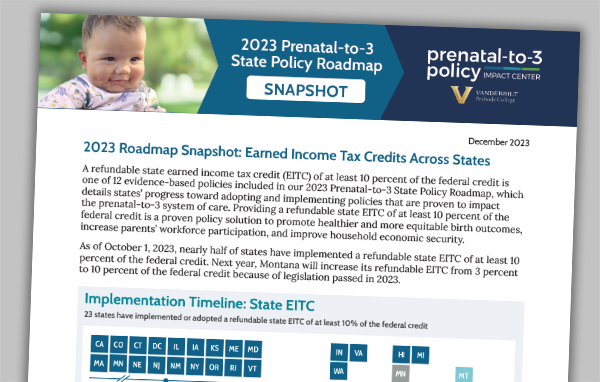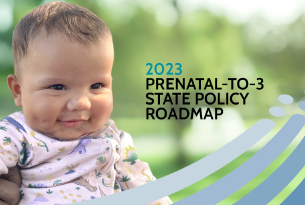A refundable state earned income tax credit (EITC) of at least 10 percent of the federal credit is one of 12 evidence-based policies included in our 2023 Prenatal-to-3 State Policy Roadmap, which details states’ progress toward adopting and implementing policies that effectively improve child and family wellbeing.
As of October 1, 2023, nearly half of states offer a refundable state EITC of at least 10 percent of the federal credit to eligible taxpayers. Next year, Montana will increase its refundable EITC from 3 percent to 10 percent of the federal credit because of legislation passed this year. The impact that state EITC policies can have on families varies, based in large part on the EITC value, refundability, and eligibility requirements.
Just this year, 30 states introduced—and several successfully enacted—legislation to establish or expand a state EITC this year.

Read the brief for more details on state progress.
The recently updated Prenatal-to-3 State Policy Roadmap provides insight into the core policy levers and further illustrates their interplay through vivid graphics, showcasing the variation in EITC policies across states.




